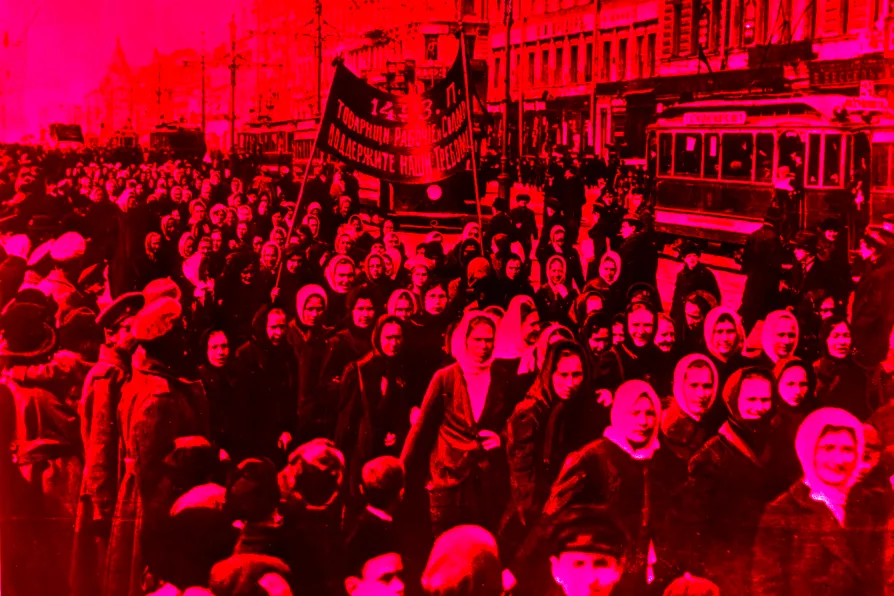Speakers in Berlin traced how Germany’s rearmament, US-led violence abroad and the repression of solidarity at home are converging in a dangerous drive toward war. BEN CHACKO reports
Returning women’s liberation to the heart of class politics
A far cry from today’s ‘diversity’ and ‘inclusion’ agenda, International Women’s Day has its origins in the revolutionary labour politics of the early 20th century, SONYA ANDERMAHR reminds us

 The proclamation of International Women’s Day in Petrograd, 1917, at the beginning of the February Revolution
The proclamation of International Women’s Day in Petrograd, 1917, at the beginning of the February Revolution
INTERNATIONAL Women’s Day, if the website devoted to it is anything to go by, is akin to a feel-good ad campaign promoting diversity and equality for all who identify as women.
This year’s theme is — hashtag compulsory — #ChooseToChallenge and the blurb on the website runs as follows: “A challenged world is an alert world. Individually, we're all responsible for our own thoughts and actions — all day, every day.
“We can all choose to challenge and call out gender bias and inequality. We can all choose to seek out and celebrate women’s achievements. Collectively, we can all help create an inclusive world.”
Similar stories

ANN HENDERSON on the exciting programme planned for this summer’s festival in the Scottish capital

Despite the harsh conditions they face, Iranian women have proved to be vanguards in the struggle for fundamental changes in our country, says Dr AZAR SEPEHR

Author RACHEL HOLMES invites readers to come to her talk in London about the great foremother of the working-class women’s movement – Eleanor Marx











